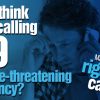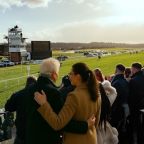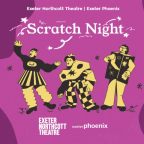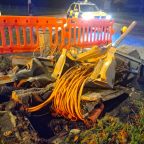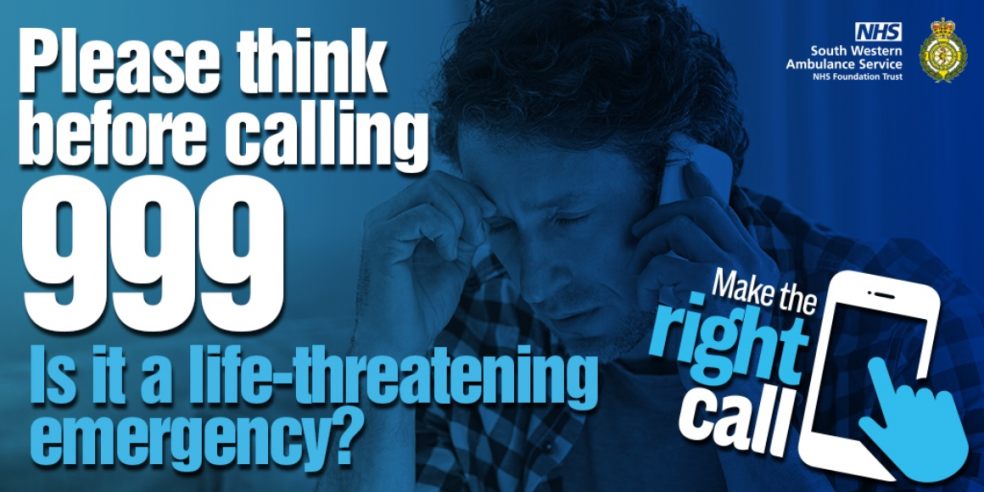
When you should call 999 this Christmas
South Western Ambulance Service NHS Foundation Trust (SWASFT) is reminding people only to call 999 in a genuine life-threatening emergency this Christmas.
The trust is anticipating a high demand for the 999 service over the festive period, due to the ongoing coronavirus (Covid-19) pandemic alongside normal winter pressures.
It has dealt with around 2,650 calls a day so far this month, and expects the final nine days to be among its busiest of the year.
SWASFT has revealed another selection of inappropriate emergency calls made to its control room recently:
1. A man asked what coronavirus is.
2. A man was blocked-in by an ambulance attending an emergency call.
3. A man wished ambulance staff ‘Merry Christmas’.
4. A man asked if his local A&E department was open.
5. A man had lost his wife in town, and wanted to know if she was in an ambulance that had just driven past him.
Misuse of the 999 service puts unnecessary additional pressures on limited ambulance resources, and can delay emergency care to those most in need.
More than half of 999 calls made to SWASFT are closed without the patient needing to be taken to hospital in an ambulance.
Around a third of patients are treated and discharged by ambulance crews at the scene, and others are given clinical advice over the phone.
999 call handler Ella said: “People might imagine that all the calls we receive are for very ill patients, such as those who are unconscious, not breathing or bleeding heavily.
“But we get calls every day that simply aren’t 999 appropriate. The patients do normally need medical help, but they should have contacted 111, their GP surgery or local pharmacy rather than the ambulance service.
“We want everyone to be able to get the right help, but that’s not always an ambulance.
“If you’re trying to decide whether or not to call 999, think ‘if there was no such thing as an ambulance, would you rush the person straight to hospital?’
“The worst scenario would be if someone who really needs our help isn’t able to get through to us.”
Specialist Paramedic Stephen said: “Many people ask me if it’s exciting driving to emergency calls using flashing blue lights. But in reality it’s extremely anxiety provoking and carries an element of risk, even though we’re highly trained in emergency driving.
“Imagine how it feels to arrive at a call to discover it’s not an emergency, and other options could have been taken rather than ringing 999 for an ambulance.
“Please make the right call, and only dial 999 in a genuine life-threatening emergency.”
People should call 999 for an ambulance in a medical emergency. This is when someone is seriously ill or injured and their life is at risk. For example: if someone has stopped breathing, has severe chest pain, is choking, may be having a stroke, has serious blood loss, or is unconscious.
People who have an urgent medical problem and aren’t sure what to do should contact NHS 111.









